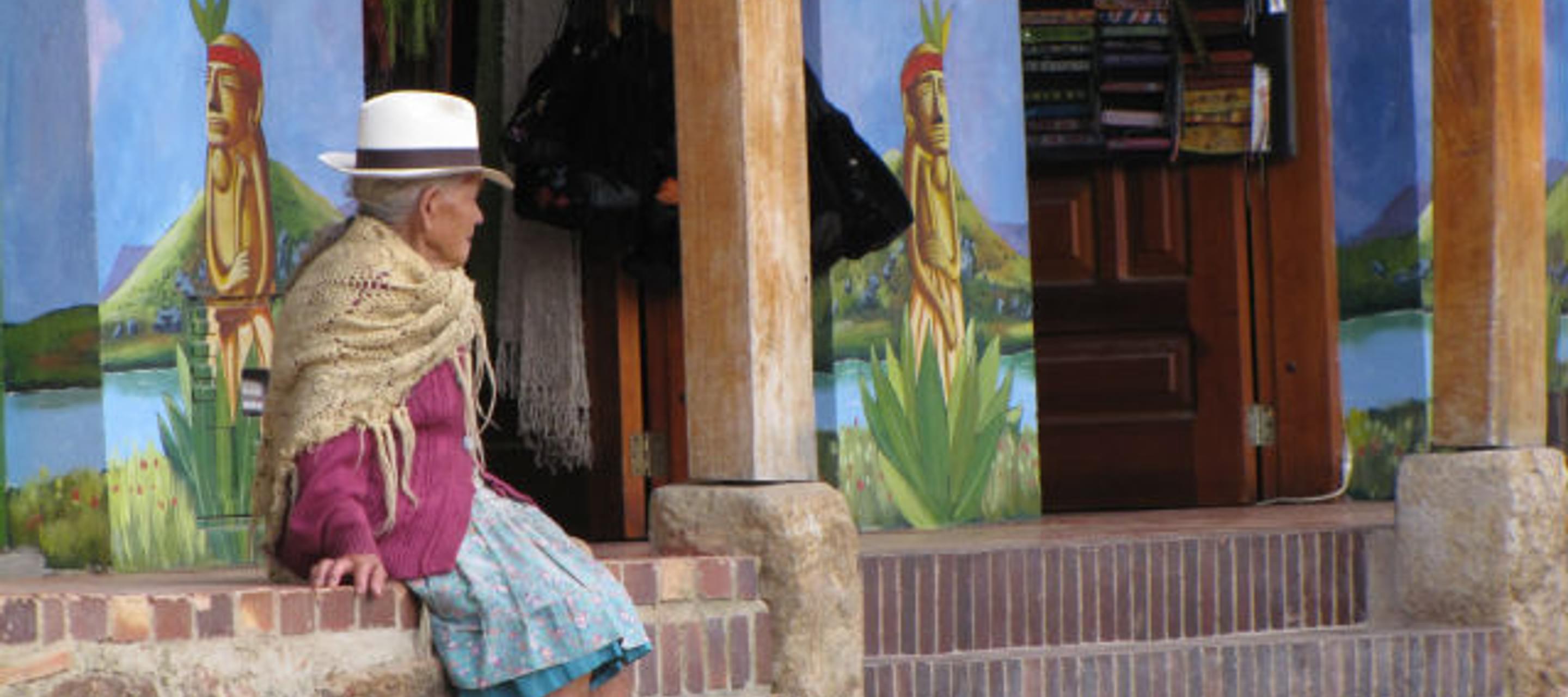Five Years On - Waves of Progress Demonstrate the Tide has Turned in Colombia
16 June 2016

On June 16th 2011, the UN Human Rights Council unanimously endorsed the UN Guiding Principles on Business & Human Rights. The Guiding Principles were unprecedented on many levels, including by reaffirming and clarifying state duties to protect against abuses involving business and by authoritatively setting out for the first time the human rights responsibilities of all companies.
Five years on, IHRB reflects on the state of business and human rights, through a series of podcasts and commentaries.
The influence of the UN Guiding Principles on Business & Human Rights (UNGP) in Colombia has emerged strong and fast. In June 2011 when the UNGP were endorsed by the UN Human Rights Council, the business and human rights agenda as a recognisable dimension of responsible business practice, or defined focus for public agencies concerned with oversight of projects or protection of individuals and communities, was practically non-existent in Colombia.
The first wave
The whole idea that businesses were accountable in the field of human rights was to a certain extent surprising, and some pushback was felt immediately after the UNGP’s endorsement.
Human rights and business in Colombia had up to then mostly been confined to the issues of complicity in crimes committed by armed organisations in the course of Colombia`s armed conflict. The limited discussion of human rights in the sphere of business was closely related with violations of civil and political rights and conflated with questions of criminal justice, armed conflict and the direct or indirect involvement of businesses.
Rather than the Government leading, the first to show interest in implementation of the UNGPs, as in many other countries, were the Colombian branches of the multinational enterprises already familiar with the ‘Protect, Respect and Remedy’ framework. Many had participated in the consultations conducted by the Special Representative on Business & Human Rights, Professor John Ruggie. This first response to the UNGPs was thus perhaps no surprise.
The second wave
The second wave came from the two main multi-stakeholder initiatives (MSI): the Extractives Committee for Security and Human Rights (CME) inspired in the Voluntary Principles on Security and Human Rights, and Guias Colombia, a company-civil society-government initiative promoting responsible business.
Both initiatives embraced the UNGPs to promote better and more thorough security risk assessments. Guias also developed guides on decent work, land, and grievance mechanisms, all of them based on the UNGPs. Both MSIs have been instrumental to the dissemination of the UNGPs in Colombia and getting key players from businesses and government to start looking at concepts like human rights due diligence and remedy from a different perspective – one of opportunity and a bridge builder to reach constituencies that have been traditionally distrustful.
A high point of the engagement of the Colombian MSIs with UNGPs was the participation of Professor Ruggie in a CME international event on security and human rights. This event and the request for Colombia to become a member of the Organisation for Economic Co-operation and Development (OECD) helped to trigger the attention of the Colombian Government to move beyond merely supporting businesses efforts to implement UNGPs. The intensification of Colombia´s peace process and commitments to international standards stimulated the reflection needed inside the government to better formalise its commitment to the UNGPs.
The third wave
International cooperation has played a big role in advancing the business and human rights agenda and in helping Colombia´s government lay the ground for a new, third wave of implementation – one where public policy on business and human rights takes centre stage.
During 2014-15, the Government initiated the preparation and discussion for creating a National Action Plan (NAP) on implementation of the UNGPs for Colombia. This followed the urging of the UN Working Group on Business & Human Rights for states to deepen their commitment to the UNGPs by formulating an action plan establishing priorities and laying policy foundations for more robust integration of the interactions of governments and businesses.
Colombia´s NAP was consulted on with key groups from various economic sectors and civil society organisations, including IHRB and CREER, the centre for responsible business IHRB helped to found in Colombia. The Colombian NAP was finally issued in December 2015, making Colombia the first Latin American country to issue a business and human rights NAP. Since then, several countries in the region have asked for advice and support from Colombia to draft their own.
The international community is also backing this pioneering effort. One of the first projects supporting the implementation of the NAP is the evaluation of the existing public and private non-judicial options for accessing remedy for human rights impacts involving business. The research, assessment of alternatives and formulation for proposed improvements is being led by CREER with the financial support of the UK’s Democracy and Human Rights Fund.
The NAP preparation and consultation process has led many Colombian agencies to reflect on how can they integrate human rights into their sectoral policies; how they can and should characterise the impacts of the economic activities under their supervision. A first significant example has been the involvement of UPME, a ministry of mines agency in charge of sector planning, in the forthcoming sector-wide impact assessment of the Colombian mining sector led by CREER. Their motivation was to include in the planning process a human rights baseline for different minerals and regions as a basic input for a do no harm approach to mining policies and projects.
The tide has turned
Would these waves of initiatives and changes in policy have occurred without the global momentum and convergence sparked by the UNGP five years ago? Certainly not in Colombia. The UNGPs have enabled the insertion of human rights into the business agenda and jumpstarted a new way of understanding the value of care and prudence in project planning and public policy.
The scope of influence may still be limited, but clear examples of concrete progress by companies and the Government in Colombia can be pointed to – this was unthinkable five years ago.
Photo: Flickr-pat_ossa




